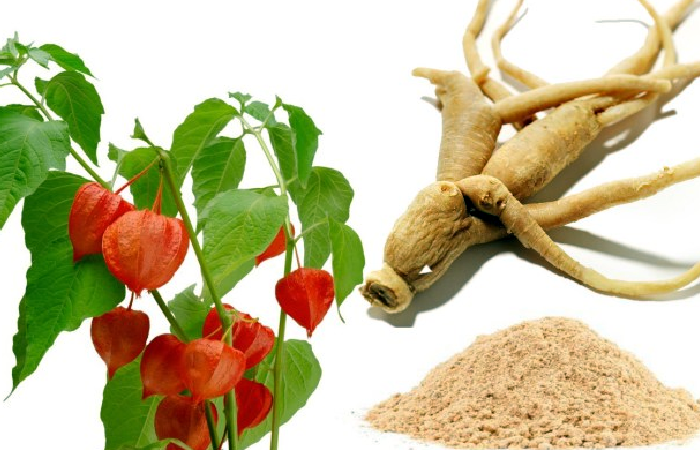Cinnamon And Its Top 5 Health Benefits
Cinnamon is a spice made from the inner bark of the plant. Due to its warm, sweet flavor and health advantages, it is frequently used in cooking, baking, and Medicine. The article below deals with some of its top health benefits.

Since ancient times, cuisine and traditional medicine have utilized spice cinnamon. It is made from the bark of various plants in the Cinnamon family and is prized for its comforting, sweet flavor.
Cinnamon is well-known for its many health advantages and culinary usage. Even supplements containing cinnamon are available in capsules, frequently with powerful forms of the active component cinnamaldehyde. The main methods that cinnamon can enhance your health are explained in this article.
Facts about Cinnamon
Cinnamon has a long history and several fascinating facts. For instance, It has been used for many years to treat various illnesses in traditional medicine, and it is still being researched for its possible health benefits today.
Additionally, cinnamon, traded along the well-known Silk Road, was once more precious than gold. There are various kinds of cinnamon, with Cassia cinnamon being the most widely used and Ceylon cinnamon being regarded as the "true" variety.

Benefits Of Cinnamon
1. Boosts Cardiovascular Health
Cinnamon is shown to benefit cardiovascular health. It can assist in improving blood sugar regulation, lower cholesterol, and lower blood pressure. After 12 weeks of daily use of 120 milligrams of cinnamon, patients' blood pressure was reduced significantly in one study.
-
Antioxidants included in cinnamon can prevent oxidative stress, a fundamental cause of heart disease, from harming the heart. Cinnamon can aid in reducing inflammation in the arteries by lowering oxidative stress. This enhances blood flow and lowers the risk of heart attack and stroke.
-
Scientists thought cinnamon would cut cholesterol, although the results were not apparent. The LDL and HDL cholesterol measures did not appear to be impacted by adding cinnamon.
-
However, blood fat, or triglycerides, was decreased by cinnamon supplementation. High triglyceride levels influence the measurement of total cholesterol concentrations and the risk of heart attack and stroke.

2. Aids in Managing and Preventing Diabetes
Even those with type 2 diabetes have demonstrated blood sugar-lowering effects of cinnamon. Cinnamon effectively lowers fasting glucose levels in persons with diabetes in doses of 120 mg to 6 g per day for 4 to 18 weeks, according to a meta-analysis that combined the findings of 10 research.
-
It improves insulin sensitivity to work. The hormone that controls blood sugar levels is insulin. The body can utilize insulin more efficiently if it is more sensitive. This might aid in managing or preventing diabetes.
-
Cinnamon has been demonstrated to help regulate blood sugar levels, which is advantageous for both people with diabetes and those who are at risk for developing diabetes.
-
Cinnamon consumption has been connected to benefits regarding blood sugar regulation. One little spice has the potential to prevent diabetes from starting by increasing insulin sensitivity.
-
According to some research, cinnamon slows down the digestion of carbs after eating. It may even imitate the effects of insulin, which can help manage blood sugar levels, fight insulin resistance, and possibly lower the chance of developing diseases like Type 2 diabetes.
3. Helps Reduce Inflammation
Since oxidative stress can cause a number of health issues ranging from fatigue to inflammation, to full-blown disease. cinnamon is a good source of antioxidants that people should consume to stay healthy. Cinnamon is one of the superfoods that contain antioxidants.
-
Cinnamon, as an antioxidant, can reduce inflammation, keeping you healthy overall and lowering your risk of injury and sickness.
-
Therefore, by enhancing the flavor profile of your food, you are simultaneously enhancing your disease resistance.
-
Cinnamon can also aid in reducing intestinal inflammation, which is crucial for preserving gut health. Cinnamon can aid in better digestion, lessen bloating and gas, and prevent leaky gut syndrome by lowering inflammation in the gut.
4. Helps in Weight Loss
Cinnamon can improve weight loss as well. Cinnamon can lessen sugar cravings and aid prevent overeating by assisting in blood sugar regulation. It boosts Your metabolism which helps you burn more calories and thus support weight loss.
- Yes, cinnamon is tasty, but it can also improve how well you digest your food. Along with other spices like pepper and ginger, cinnamon promotes the formation of prebiotic bacteria, which are beneficial for improving digestion.

-
These prebiotics' bacteria support gut health restoration, which can ease any persistent or urgent stomach disorders.
-
A meta-analysis that combined the findings from 7 trials discovered that taking cinnamon supplements lowers body weight and BMI. It was discovered that individuals who consumed more than 3 grams of cinnamon daily saw more significant outcomes.
5. Boosts The Function Of The Brain
one study, cinnamon can enhance mental abilities such as memory and focus. Cinnamon's polyphenols have antioxidant properties that may aid cognitive function because "oxidative stress and inflammation can worsen cognitive-related conditions and interfere with the typical central nervous system functioning.
-
In fact, cinnamon has the potential to not only maintain your mind where it is but also enhance how it functions.
-
According to a different study, cinnamon can assist in preventing age-related brain deterioration by boosting the creation of crucial proteins for brain health.
-
Cinnamon can also help with mood improvement by increasing the production of serotonin, a crucial neurotransmitter.
-
Some study indicates that cinnamon can be effective in slowing the onset or progression of various neurological and degenerative brain disorders like Parkinson's or Alzheimer's disease.
-
Cinnamon may help protect certain neurons and chemical messengers in the brain for better cognitive health and reduced risk of cognitive-related disease.
-
Eating a pleasant spice has the lovely benefit of allowing you to rest easy knowing that your risk of brain disease is reduced as a result of your dietary choices.
Conclusion
Cinnamon. is demonstrated to be beneficial for brain health. A delightful spice with many health advantages is cinnamon. It is a fantastic method to boost your body, whether you sprinkle it on your muesli, add it to your coffee or use it in your cuisine.
Cinnamon in your daily diet has several advantages, from enhancing heart health to reducing inflammation, assisting with weight loss, and enhancing brain performance.
Some supplements include full versions of a herb's or spice's active chemical. If you're taking a cinnamon supplement, do not exceed the dosage suggested on the bottle.
Is Cinnamon Bad For Cats And Dogs?
Although technically not hazardous, too much cinnamon can have negative health effects on cats and dogs. The main issue is that cinnamon includes coumarin, an organic substance that has the potential to thin the blood. This means that a cat or dog who consumes an excessive amount of cinnamon may experience issues with blood coagulation.
-
Additionally, cinnamon can irritate a dog or cat's skin or digestive system. If your pet consumes cinnamon, they could exhibit signs like vomiting, diarrhoea, and breathing problems. Cinnamon poisoning can occasionally prove fatal.
-
Depending on the animal's size, different amounts of cinnamon are regarded as hazardous to cats and dogs. Just a teaspoon of cinnamon could be problematic for a tiny dog. It might require more than a spoonful for a larger dog.
-
Call your veterinarian right away if you suspect your cat or dog has consumed cinnamon. They will be able to evaluate your pet's health and make treatment suggestions.
-
Giving cinnamon to cats and dogs is generally not advised. If you do decide to use cinnamon in your cooking, be sure your dogs can't get to it.
Does Cinnamon Cause Allergies In Humans?
It is true that some people can react allergically to cinnamon. These reactions can show symptoms that range from mild to severe, such as:
- Hives
- Itching
- Swelling
- Difficulty In breathing
- Another allergic reaction is anaphylaxis.
If you experience any of these symptoms, it's critical to get medical attention right once.
People of various ages can develop cinnamon allergies. They are more common in those who have sensitivities to other foods or spices.
It is thought that an immune reaction to the proteins in cinnamon causes allergies, even if the exact aetiology of cinnamon allergies is not fully understood.
Although there is no known treatment for allergies to cinnamon, there are things you may do to prevent them. These consist of:
- Avoiding cinnamon-containing meals and products
- Carefully examining food labels
- Consulting your physician about allergy testing



